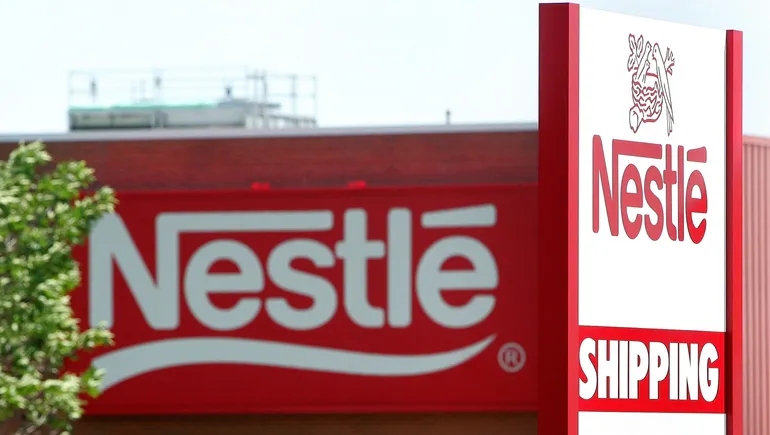Nestlé debuts new brand for consumers using GLP-1 drugs, managing weight

Nestlé is launching its first major U.S. brand in nearly three decades as the food giant looks to meet the needs of consumers taking GLP-1 medications and other individuals focusing on weight management.
The Vital Pursuit frozen product line, which is expected to reach store shelves by October, will include bowls with whole grains or protein pasta, portion-aligned sandwich melts and pizzas with cauliflower crust. More products are expected in the future.
The single-serve meals are a response to changes in how consumers are going about losing weight — most notably with an increased dependence on medications such as Ozempic or Wegovy to suppress their appetites and keep them feeling fuller longer. Vital Pursuit prioritizes convenience, taste, portion size and delivering much-needed nutrients.
“Weight loss has evolved, and so we are making sure that we’re evolving at the same pace to complement where it is going,” Jennifer Barnes, vice president of brand marketing for Nestlé’s nutritional meals portfolio, said in an interview. “We want to make sure that we’re leading in this space.”
The Lean Cuisine and Hot Pockets maker, citing data from J.P. Morgan, estimated the market for people using GLP-1 medication for weight loss will surpass $100 billion, and 9 million Americans will be taking drugs to help in the effort by 2030. Barnes noted that roughly 80% of consumers are trying to manage their weight in some capacity and nearly half have tried to lose weight at some point during the course of a year.
She added that while the use of GLP-1 medication is expected to grow, which will help Vital Pursuit, the bigger opportunity for the brand is from those consumers who are trying to control their weight.
The ability of Vital Pursuit to grab even a small portion of these two groups could be a boon to Nestlé, which already rings up more than $33 billion in sales annually in the U.S., its largest market globally.
Barnes wouldn’t disclose revenue projections for Vital Pursuit but said Nestlé views the offering as one that will be “sustainable” and “relevant for decades” at the packaged food manufacturer. She said the company has had “very positive conversations” with retailers about carrying the product.
“We’re building it to be a future major contributor to our frozen meals portfolio,” Barnes said.

Optional Caption
Courtesy of Nestlé
Addressing gaps in the market
In creating Vital Pursuit, Nestlé took into account that consumers who are managing their weight may place a greater emphasis on portion control and balanced nutrients in their eating choices without wanting to compromise on taste and accessibility.
Vital Pursuit products are high in protein, a good source of fiber and contain essential nutrients such as vitamin A, potassium, calcium or iron, the Switzerland-based company said. They’re also portion-aligned to a weight loss medication user’s appetite.
A year ago, Nestlé started actively talking with consumers on GLP-1 drugs, or those interested in using them, as well as consumers purchasing other brands in its portfolio. The goal was to better understand “their needs [and] what were the gaps in the market,” Barnes said.
The frozen category, in particular, was found to “be ripe for innovation” among shoppers looking for new weight management options. A challenge many people using GLP-1 drugs experience is that they’re often taking in fewer nutrients, “which can set back their progress,” Barnes added.
An estimated one in three adults and one in six children are classified as overweight, according to the National Institute of Health. Obesity can cause a variety of health issues, the Centers for Disease Control and Prevention says, including increased risk of type 2 diabetes, high blood pressure and stroke.
Throughout its history, Nestlé has launched brands specifically geared toward popular trends embraced by consumers. The world’s largest food company introduced Lean Cuisine in 1981 to help people reduce their caloric intake, and five years later it rolled out Nespresso to enable people to make their espresso coffee like a barista.
The popularity of weight-loss medications has prompted concerns from CPG companies that people who take them will sharply cut back on how much food they purchase. A December study from Numerator found consumers using the GLP-1 medication for weight loss are spending less in grocery stores, with bakery and snacks among the hardest hit.
But food manufacturers have routinely downplayed the negative impact that consumers using weight-loss drugs will have on their businesses.
PepsiCo CEO Ramon Laguarta said in August the impact on his business has been “negligible” so far and that there are “obviously a lot of question marks.” Dirk Van de Put, Mondelēz International’s CEO, observed a few months later that “it’s really not a big concern for us at this stage.” He predicted a minimal impact on volumes at the Oreo and Ritz maker of about 0.5% to 1% in a decade.
But some packaged food companies, such as Nestlé and Conagra Brands, see an opportunity to sell more products, including popcorn, frozen meals, cereals and soups.
Tom McGough, co‐chief operating officer with Conagra, said in February that the Numerator data showed consumption of better-for-you frozen meals increased 8% in people taking weight-loss drugs. Frozen meals are portion controlled, provide valuable nutrition and are often high in protein — attributes many people taking the medications are looking for in their food.
Barnes said like with any trend, there will be “varied opinions” about the impact it will have on food consumption.
“We anticipate that this is only going to grow,” she said. “We’re really trying to accelerate into the market. This is a highly needed space for us to continue to innovate and bring solutions to.”
Source: fooddive.com

